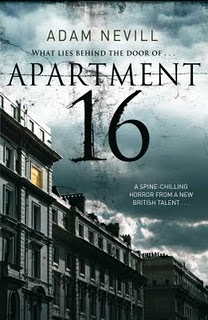Zach wakes in a cold sweat, unsure for a moment where he is. He grips the cheap hotel sheets in each of his clenched fists, and remembers. Bellevue. He reaches for the glass of water he left on the nightstand, now disgustingly warm, and drinks it in one go. The bedsheets cling to his legs uncomfortably, and he casts them to one side. He gets up and strides naked over to the window, opening the window as wide as it will go.
“What am I doing here...?” Talking to himself has become something of an annoying habit lately. In another life he’d had a sounding board for every stray thought – William. One of the most excruciating things following his brother’s death, the thing that had made his absence all the more immediate and real, was the silence. It took months for Zach to become accustomed to having only himself for company, to no longer have William’s mind within reach.
Telepathy was a strong, not entirely accurate word for what they’d shared. If one of them were injured, the other would not cry out. And Zach had certainly not felt anything the day his brother took a bullet to the head. But when it came to finishing each other’s sentences, and anticipating every single action, they had bordered on the uncanny. And throughout their life together, neither had ever felt alone. To suddenly not be one half of a whole, but simply one, had been almost too much to bear.
A cricket trills out there somewhere, and something flying over the hotel casts a fleeting shadow. The night is alive, Zach thinks, buzzing and pulsing like one great dark body. He dismisses this idea as the product of exhaustion, and turns back into the room. His bag lies open on the floor; he pulls out his folder and empties it onto the floor, carefully spreading the various documents, photographs and newspaper clippings out over the carpet. He hasn’t even bothered to justify to himself why he has brought these with him, when all he needs is the photograph and the phone records that Quentin Forrester gave him.
His own image, or rather, William’s, is plastered over the press articles, along with that of Georgina. Zach’s name is often included at the end of the piece: Hall is survived by his parents, Miranda and Gregory, and twin brother Zachary. Some of these are newspapers that Zach once dreamed of working for. Reporters had always been his crusading, truth-seeking role models: permeated with the stench of black coffee and cigarette smoke, they let nothing get in the way of a story. Right now, the idea of cannibalising somebody else’s misery and churning it out in the name of journalism makes him sick to his stomach.
He knows every piece of news coverage off by heart, but still Zach studies them, in the dull orange glow cast by the streetlamp outside, like the last light of a dying sun, until his eyes begin to sting. The room is still incredibly warm, and so he leaves the window open when he goes back to bed. He lies wide awake for a few moments, staring at the cracks in the ceiling, but is soon sleeping soundly with the sweet ignorance of somebody who doesn’t know he is being watched.
































